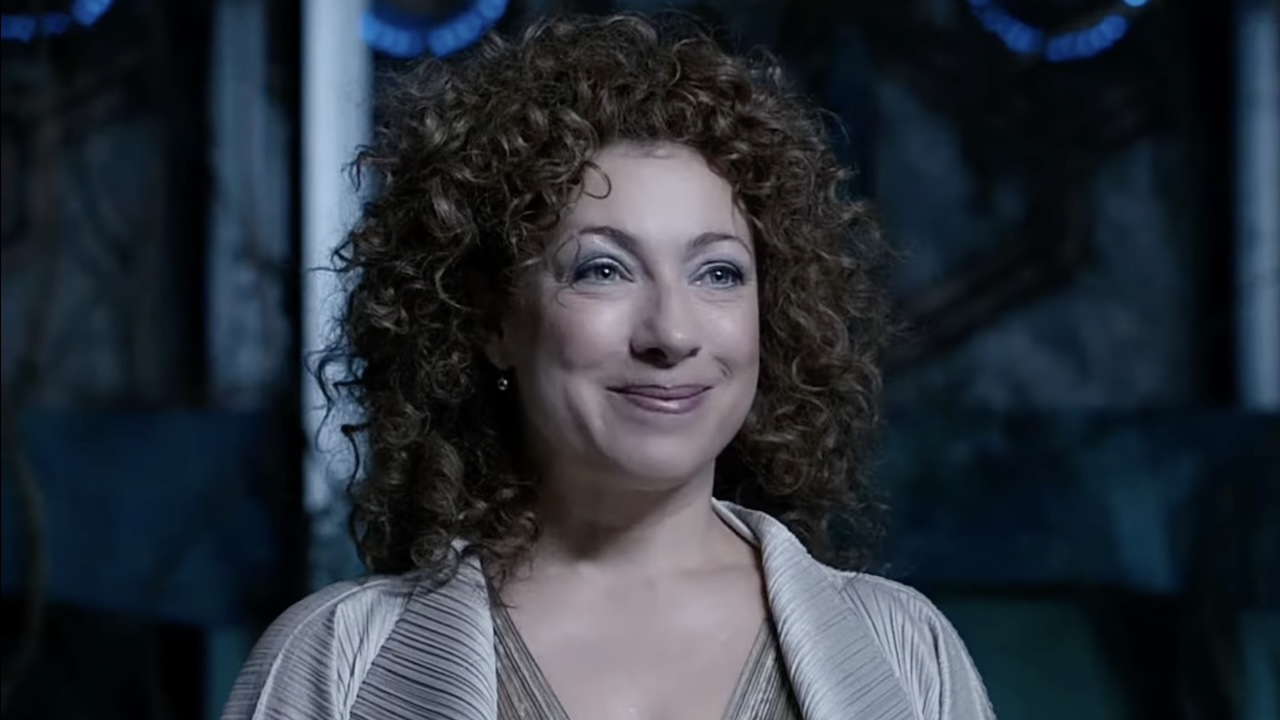Adapting Stephen King's The Colorado Kid: 2010 SyFy Series Haven Stretches The Definition Of 'Stephen King Adaptation'
The second longest-running series based on a Stephen King book.
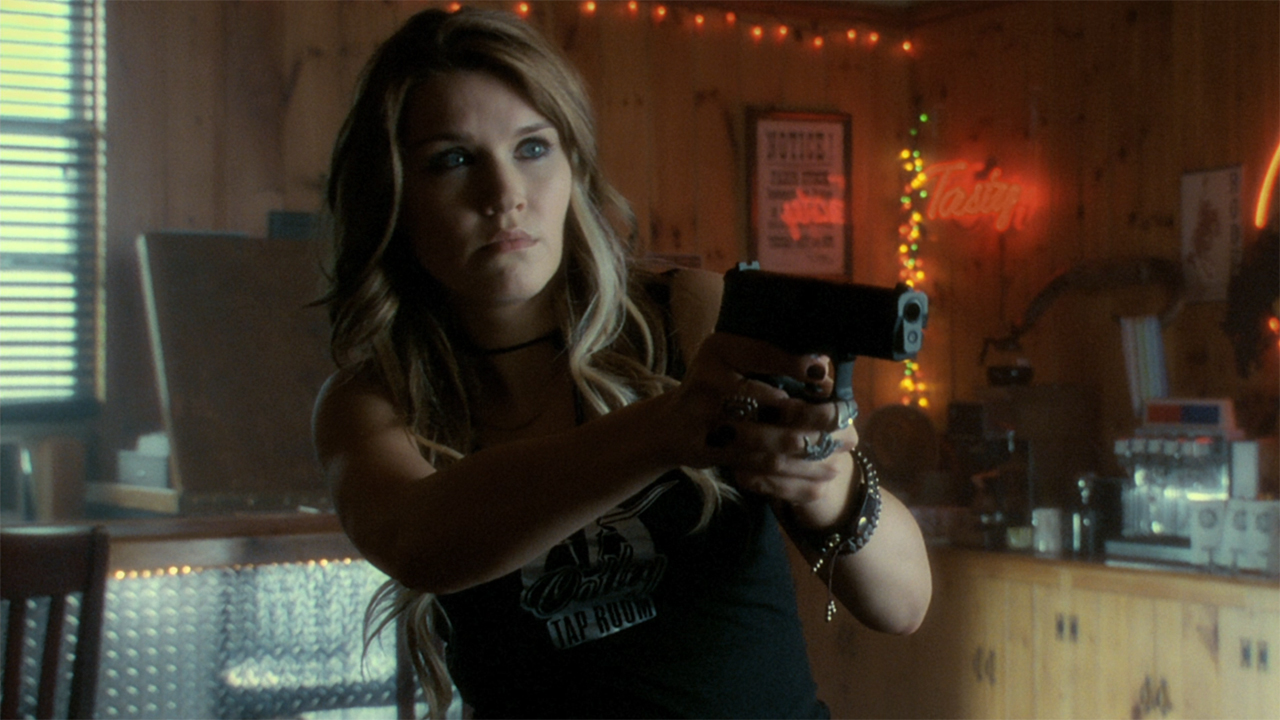
Your Daily Blend of Entertainment News
You are now subscribed
Your newsletter sign-up was successful
In 1992, Stephen King made a bold legal move. A few months after the theatrical release of Brett Leonard’s The Lawnmower Man, the author sued the film’s producers and New Line Cinema for the misuse of his name. The feature claimed to be an adaptation of King’s short story with the same title, and the writer took issue with the fact that the movie heavily used his name for publicity, and yet bore practically no relationship to his work.
The ruling on the case came down in Stephen King’s favor, and it’s something that admittedly colors the way I watch King movies, miniseries, and television shows. Because of the lawsuit, The Lawnmower Man creates a line regarding how far you can change source material before it becomes something out-of-bounds (this is why I didn’t write an Adapting Stephen King column about it). Most projects stay relatively far away from this line, but the 2010 SyFy series Haven, created by Jim Dunn and Sam Ernst and “based” on the novel The Colorado Kid, tiptoes remarkably close.
What surely stopped Stephen King from suing the producers and network was the fact that he had what he described as a “small stake” in the development of the pilot (per Stephen King Films FAQ by Scott von Doviak). The project was originally in the works with the title Sanctuary to be an on-going series for ABC, and while it spent a couple years in development hell, it eventually found a producer in E1 Entertainment and a home on Syfy in December 2009.
Premiering on July 9, 2010, Haven ultimately ran for five seasons and produced 78 episodes – making it the second longest-running Stephen King series after USA’s The Dead Zone (which ran for 80 episodes). As far as being an adaptation, though, it’s a project that started off far away from the book it was supposedly based on, and it never got any closer over the course of six years. How that all breaks down is what gets the spotlight in this week’s Adapting Stephen King.
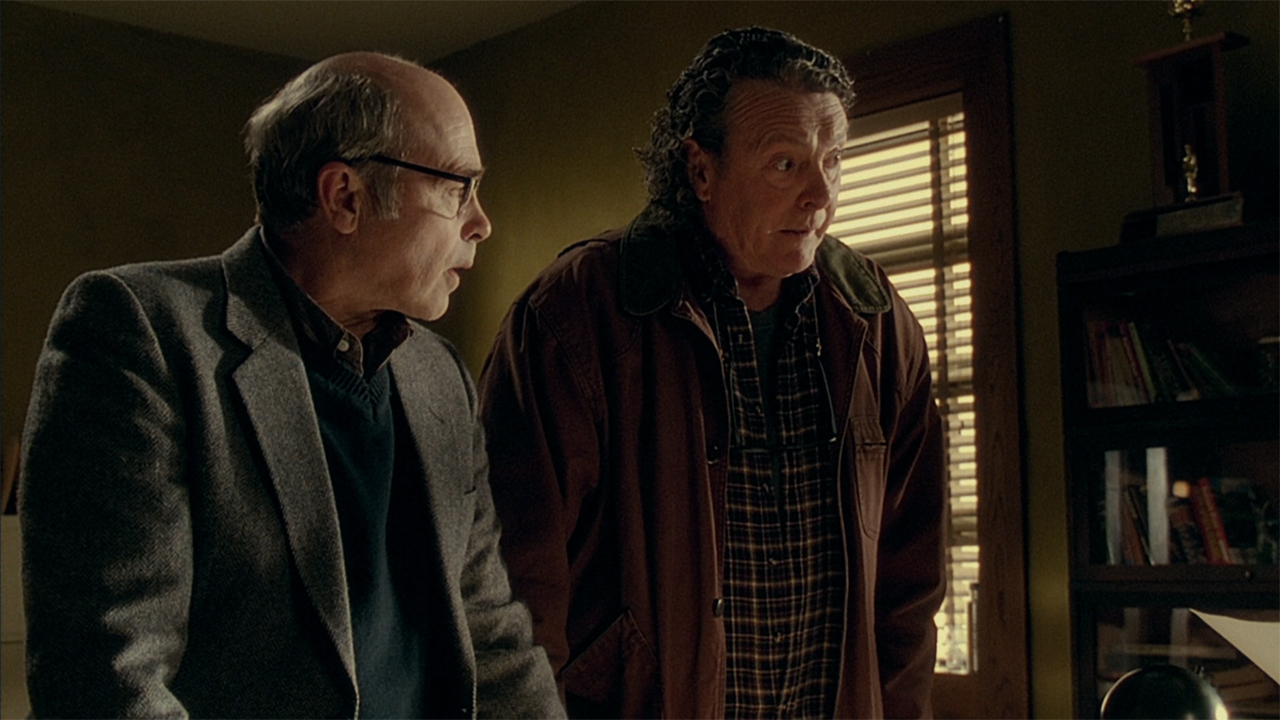
What The Colorado Kid Is About
Ever one to challenge himself and experiment with different creative avenues, Stephen King wrote The Colorado Kid as a crack at crafting a classic pulp mystery – the novel published by Hard Case crime as a first edition paperback in 2005. It’s regarded as one of the more controversial King works (something that King anticipated before publication), and in the afterword of the book he pins the origins on a newspaper clipping that was given to him by a friend with the intent of getting the writer’s creative juices flowing. According to King, that kind of jump start doesn’t usually work for him, but this was an exception.
The article was about an unidentified woman who was found dead on an island off the coast of Maine. One day she was seen on the local main street carrying a bright red purse, and the next she was discovered deceased on the beach without the bag (hence sans identification). Stephen King writes that the cause of death was tentatively ruled to be drowning, but he was enchanted by the nature of the mystery and used it as the basis of what would become The Colorado Kid.
Set on the fictional Moose-Lookit Island, the story centers on Stephanie McCann: a young woman from Cincinnati, Ohio who takes an internship at the local newspaper, The Weekly Islander, as part of a University of Ohio postgrad program. She works alongside two wily journalist veterans – editor Dave Bowie and founder Vince Teague – and after lunch one day they tell her about a mystery left unsolved for more than two decades as a subtle way of testing her investigative prowess.
Your Daily Blend of Entertainment News
In 1980, a dead man was discovered on the local beach with no identification to speak of, and a large chunk of steak stuck down his throat. In his pockets were discovered a Russian coin and a pack of cigarettes identified as being from Colorado via an out-of-state tax stamp – hence why he was given the nickname The Colorado Kid. He was eventually identified as James Cogan, but authorities were never able to determine the circumstances that led to his death, or whether or not there was foul play involved.
The reason why The Colorado Kid is controversial is because it’s a story that doesn’t have any kind of defined ending or solution – leaving the reader to either embrace the nature of the mystery (like Stephen King did with the original newspaper clipping) or make their own conclusions about what happened. King’s perspective is that you should lean toward the former, writing in his afterward,
I write to find out what I think, and what I found out writing The Colorado Kid was that maybe – I just say maybe – it’s the beauty of the mystery that allows us to live sane as we pilot our fragile bodies through this demolition-derby world.
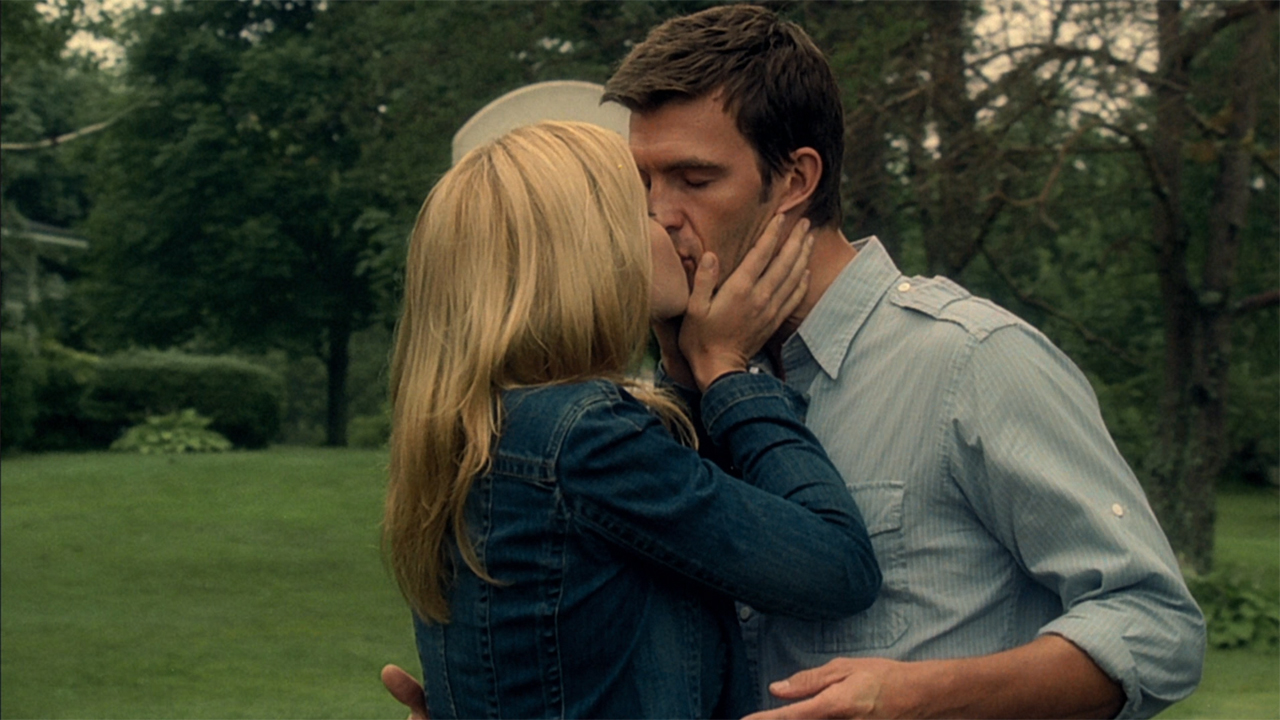
How Haven Differs From The Colorado Kid
So just how far does Haven stray from The Colorado Kid? Let’s start with the fact that the show’s title comes from the setting of the series… which you’ll notice is not Moose-Lookit Island. Instead, Haven is a completely different fictional town created by Stephen King, and one that fans of The Tommyknockers will remember as the primary setting for that book/miniseries. But that’s truly just the tip of the iceberg within this particular discussion.
Vince Teague (Richard Donat) is technically the only character from The Colorado Kid who is directly translated in Haven, as while Dave (John Dunsworth) is still a part of the story, his name is changed to Dave Teagues and he is made to be Vince’s brother. Instead of a journalist protagonist named Stephanie McCann, the show’s principal lead is Audrey Parker (Emily Rose), an FBI agent who travels to the eponymous town while investigating a case. She ends up staying in town because she finds an old crime scene photo featuring a woman that she thinks may be the mother she never met – and the photo is connected to an unsolved murder of a victim known as “The Colorado Kid.”
Audrey eventually learns that Haven is plagued by cyclical periods known as The Troubles that sees members of the town’s population demonstrate powerful and dangerous abilities – and most of the episodes are “monster of the week” type stories that see Audrey and local police officer Nathan Wuornos (Lucas Bryant) try and stop the “trouble” and save lives. None of any of this has anything to do with what is featured between the covers of The Colorado Kid… and definitely not helping anything in that department is the serialized plot that runs through the entire show.
It’s eventually discovered that Audrey Parker is not actually Audrey Parker, but instead some kind of supernatural being, and the woman she sees in the photo with The Colorado Kid is not her mother, but instead herself. What’s more, The Colorado Kid turns out to be her son from that past life, and the father is Nathan – who at one point time travels and sleeps with Audrey (who back then went by the name of Sarah). That’s a fraction of how convoluted and ridiculous the series gets.
In the discussion of links between Haven and The Colorado Kid, I suppose I should mention that there is a common location that connects the adaptation and the book: Stephen King’s book begins with the characters in a restaurant called The Grey Gull, and that’s the name of an establishment on the show owned by Nathan’s bad boy romantic rival Duke Crocker (Eric Balfour). That’s a thin link, but it’s indicative of the way that the adaptation treats its source material.
I should additionally mention that while Haven is only barely related to The Colorado Kid, the series does have the occasional Easter egg that audiences can look for. For example, the Troubles happen in the town every 27 years, which is the same as Pennywise’s cycle in IT – and the Season 2 premiere even features a sequence with a boy in a yellow rain slicker chasing a paper boat into a gutter. In the ninth episode of Season 1, Vince gives Audrey Parker a First Edition copy of Misery Unchained (“signed by the author before that lady chopped off his foot”), and that same episode sees Nicholas Campbell (who plays Nathan’s father on Haven) wear a black, high-collar raincoat that looks almost identical to the one he wore in David Cronenberg’s The Dead Zone as serial killer Frank Dodd.
Haven’s fourth and final seasons features discussions about “thinnies,” which are thin spots between layers of the multiverse that Stephen King writes about in the Dark Tower books, and there are tiny nods like a bar in Season 4 premiere being called the Oatley Tap Room (which is from The Talisman). These are fun details to spot… but don’t really make up for the show’s original sin.
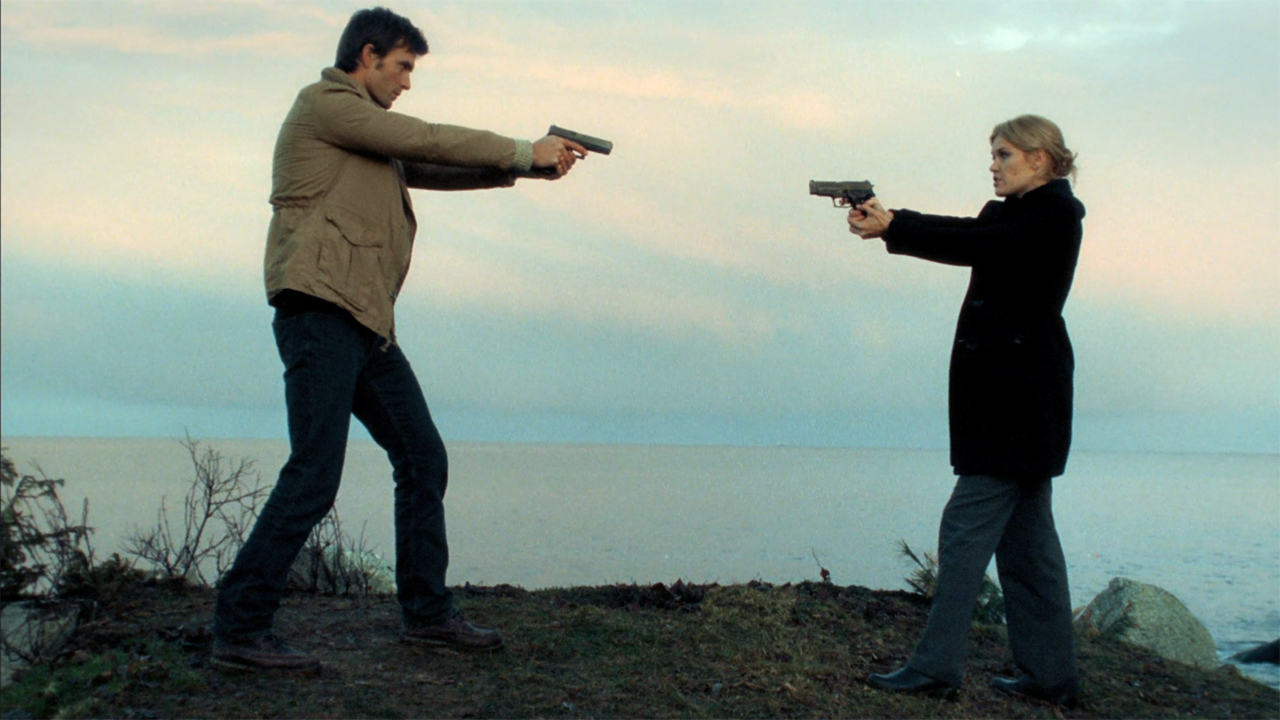
Is It Worthy Of The King?
Having never watched Haven before, I watched all 78 episodes of the series for the first time in the run up to writing this column – and while “I watched the whole thing so you don’t have to” is perhaps too strong of a sentiment, I will say that the principal adjective that I’d use to describe the experience is “laborious.”
I take no specific issue with episodic television (I actually think quality episodic content is something the landscape is really lacking right now), but the plots get so rote and formulaic that you eventually get numb to the drama, and it never gets clever or inventive with its various “trouble” setups. There is a cheap, plastic love triangle that the show tries to hold up between Audrey, Nathan, and Duke, but nothing is helped by the lack of chemistry between the stars.
I’d give more credit to the batshit insanity of the serial plotting if I felt that there was any real organization to it, but it becomes very clear after a certain point that Haven is a show where the writers desperately fight each season to come up with some way to try and continue the ridiculous plotting that they set up for themselves in the previous round of episodes. I can’t even begin to imagine going back and rewatching the show knowing everything I know from the ending, as there is no way that anything with the characters from Season 1 are going to line up with the arcs and developments that follow it.
To throw a feather in its cap, I would go as far as to say that Haven is at least the second best of the three Stephen King series to last more than two seasons (and I’ll be digging into the nadir of that particular list at the end of the month).
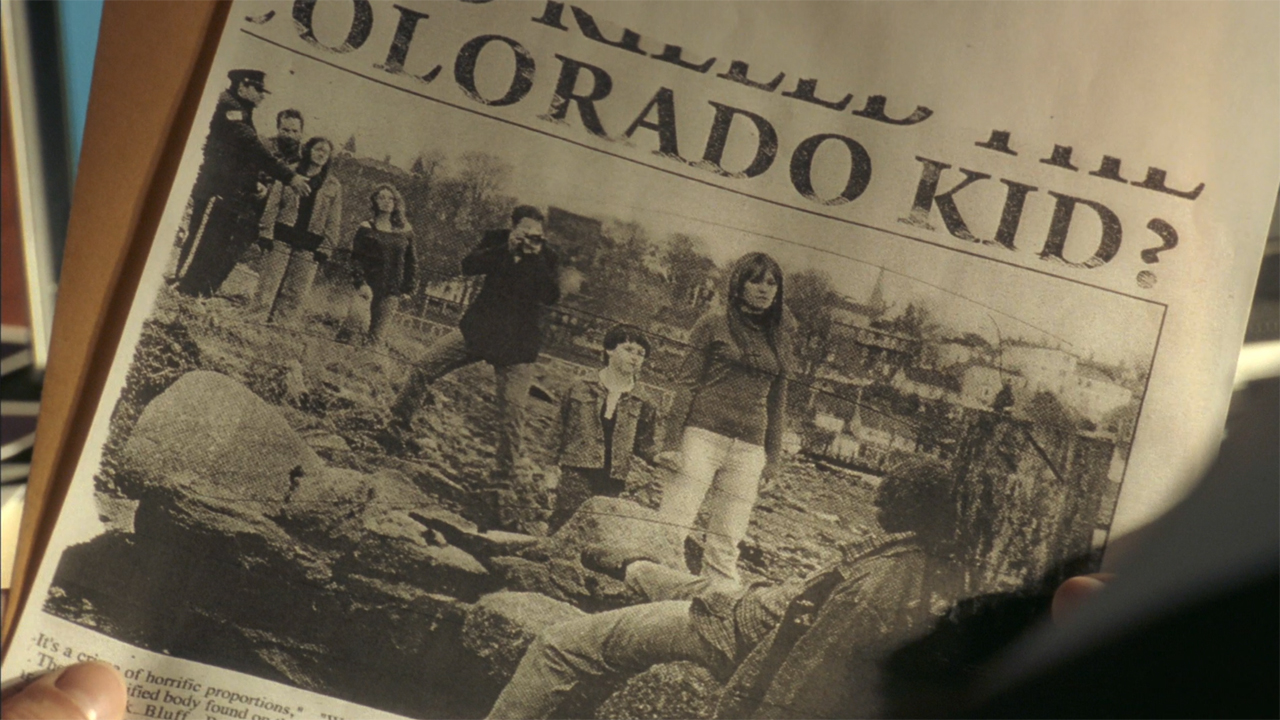
How To Watch Haven
As far as physical media goes, Haven makes for a hard box to check when building your Ultimate Stephen King Collection. While it’s easy to find the first three seasons on Blu-ray, the same cannot be said for the latter half of the show. They were all released on Blu-ray – as Season 4; Season 5, Vol. 1; and The Final Season, Vol. 2 – but they are weirdly hard to find, and often very expensive. If you don’t want to deal with that hassle and just want to watch the series in HD online, you can purchase every episode digitally via Google Play or Amazon. If you don’t mind commercial interruptions, you can also watch the complete series on The Roku Channel.
Coming up, next week’s Adapting Stephen King will be exploring a new genre with a dive into the gothic horror of Bag Of Bones – specifically the 2011 Mick Garris-directed miniseries based on the 1998 novel of the same name. The piece will be available in the CinemaBlend TV section next Wednesday, and between now and then you can check out all of my previous columns by clicking through the banners below.







Eric Eisenberg is the Assistant Managing Editor at CinemaBlend. After graduating Boston University and earning a bachelor’s degree in journalism, he took a part-time job as a staff writer for CinemaBlend, and after six months was offered the opportunity to move to Los Angeles and take on a newly created West Coast Editor position. Over a decade later, he's continuing to advance his interests and expertise. In addition to conducting filmmaker interviews and contributing to the news and feature content of the site, Eric also oversees the Movie Reviews section, writes the the weekend box office report (published Sundays), and is the site's resident Stephen King expert. He has two King-related columns.
